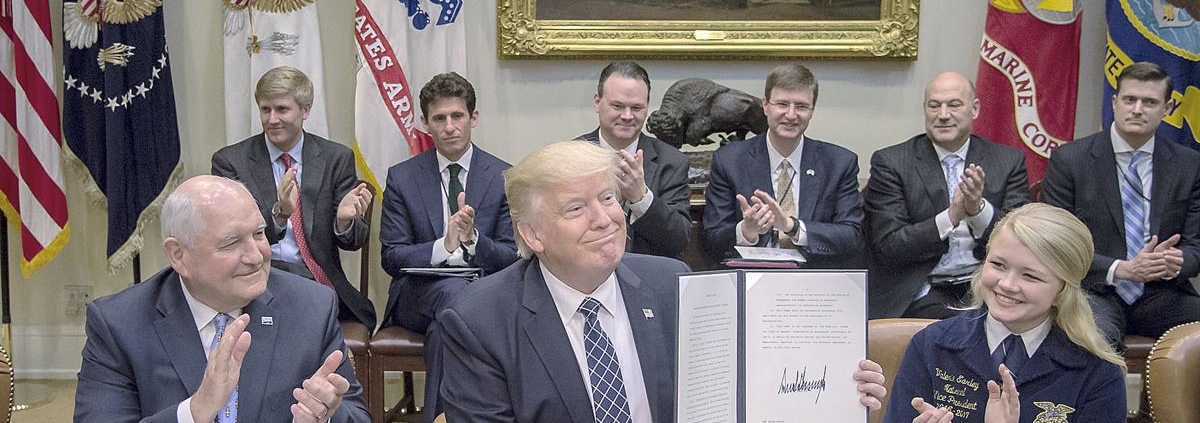CAPITAL PRESS: Trumping’ regulation: Administration rolling back restrictions on agriculture
On the regulatory front, this administration is clearly better than the last, said Paul Schlegel, managing director of public policy for the Farm Bureau.
“There is a tendency to listen a little bit more in this administration and welcome input,” he said.
Outreach is better, and there’s a willingness to get a feel for what it means to own land and invest in equipment, he said.
“It’s a significant change. I think when people do listen they gain an appreciation of your view and don’t dismiss it out-of-hand,” he said.
Waters of the U.S.
The Farm Bureau has focused on changes to several regulatory issues, with the Waters of the U.S. at the top of the list, he said.
In the waning days of the Obama administration, the Environmental Protection Agency and the U.S. Army Corps of Engineers released the controversial WOTUS rule, which greatly expanded federal authority over waters protected under the Clean Water Act.
More than 30 states sued the federal government, and the Farm Bureau and farmers were involved in litigation as well, he said.
In December, the Trump administration proposed a new WOTUS rule, which it says will bring certainty to farmers and ranchers that they’re not going to face enforcement for what they do on their land and features such as a low spot that temporarily holds water after a rain won’t be subject to regulation, he said.
“It’s a more balanced and reasonable interpretation of the statute. It’s tremendously important,” he said.
Reining in WOTUS is also a top priority for National Cattlemen’s Beef Association.
“That’s one (issue) where we’re seeing repeal and replace — that’s huge,” Scott Yager, NCBA’s chief environmental counsel, said. “It’s one of the biggest issues; it regulated just about anything out there.”
It was also intentionally ambiguous to give agencies carte blanche to interpret the rule however they want, he said. The rule would have applied federal protection to every stock pond, farm ditch, seasonal stream and dry wash in the country, he said.
It was a broad over-expansion of the Clean Water Act, which would have resulted in every farm and ranch falling under its purview. That would have a direct impact on producers in time and money to comply, get permits and hire consultants and engineers, he said.
Replacing the rule is taking longer than NCBA had hoped, but it’s happening. The administration came out with a new rule that includes some really good things, he said.
“It provides clean water and clear rules,” he said.
Continue reading at Capital Press…
Photo Credit: USDA



